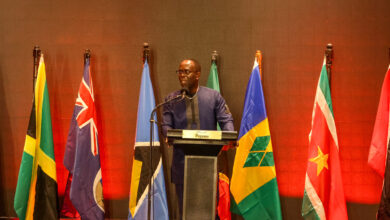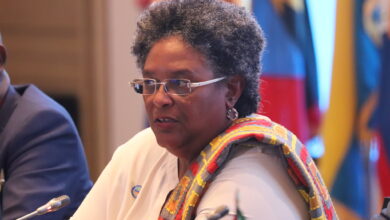(CARICOM Secretariat, Turkeyen, Greater Georgetown, Guyana) Director of Human and Social Development in the CARICOM Secretariat, Myrna Bernard is advocating for formal education on Gender-Based Violence (GBV).
In a presentation to the two-day meeting of the Bureau of Women’s/Gender Affairs in Georgetown, Guyana on Wednesday, Ms Bernard told gender directors and coordinators that they should consider more seriously the introduction of GBV in the Health and Family Life Education curriculum, a curriculum which was intended to address violence in the schools context.
She said that a gender perspective should be integrated in that curriculum as part of a broader approach to addressing life skills.
Notwithstanding, she acknowledged that the Issue of teacher preparedness to deliver such a curriculum was a cause for concern and suggested that the Bureau target not only teachers and administrators but policy makers in addressing gender training.
Her remarks came against the background of findings from a recent Study on Gender Differentials at the Secondary and Tertiary Level of the Educational System in the Anglophone Caribbean. The Study, conducted in three phases by UWI Professor Barbara Bailey revealed, among other things, widespread abuses by both teachers and students in Caribbean schools.
Sponsored by the United Nations Development Fund for Women (UNIFEM), the Meeting of the Bureau addressed several important cross-cutting issues. One of those related to developing strategies and action plans to sensitise the Region on reducing the scourge of violence in the Region.
The Meeting also discussed an update on the gender based violence project funded under the CARICOM/Spain Cooperation Agreement. The project seeks to develop a more coordinated and integrated approach to reducing GBV in the CARICOM region.
In endorsing Ms Bernard’s comments, the Meeting noted that Gender Based Violence was a social problem and a development issue that required a multi-sectoral response. This response, they agreed, must include legislative and institutional frameworks as well as budgetary allocations.





